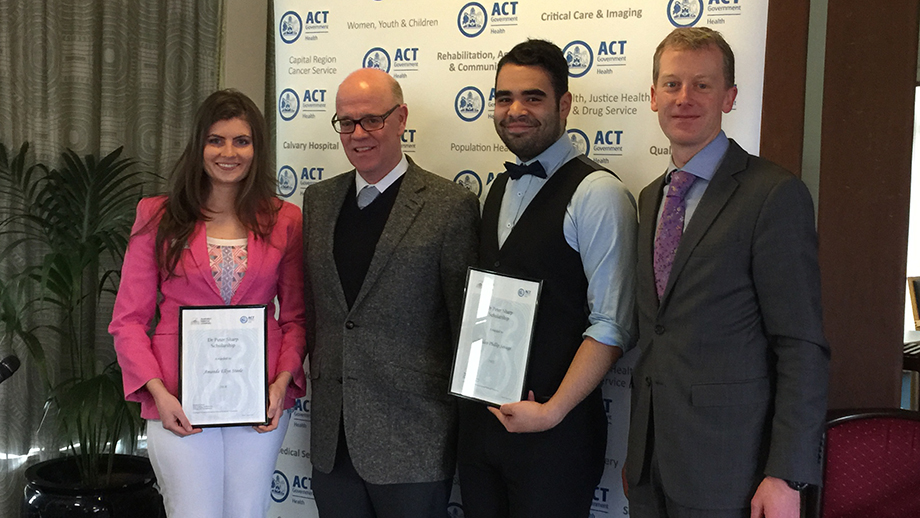Scholarship to assist Indigenous ANU medical school students
ANU Medical School students Amanda Steele and Jordan Savage have been awarded the Peter Sharp Scholarship, for students in the ANU Medical School's Indigenous Stream.
The scholarship is funded by the ACT Government and administrated by the ANU Medical School and offers each recipient $72,000 over four years.
Jordan, who is completing his first year, said he was ecstatic.
"The scholarship will allow me to study more and spend less time working," he said.
"It will also allow me to attend conferences and such that I might not have otherwise been able to fund myself."
ACT Health Academic Unit of General Practice Director Professor Kirsty Douglas congratulated the students.
"Congratulations to Amanda and Jordan; Peter, if he was here, would be honoured to have two such outstanding candidates receiving this award and would be standing by happy to support you to make the most of this wonderful opportunity."
Amanda, who is a Wiradjuri woman, said the scholarship provides motivation and support to continue her passion for Indigenous health, while struggling through difficult exams in medicine.
"It reminds me why I am doing medicine, which is to hopefully make a difference in Aboriginal and Torres Strait Islander peoples lives in regards to health and wellbeing," Amanda said.
Jordan is a Kaandju descendant on his mother's side, Badu Island descendant on his father's side.
He has worked with the local Aboriginal Medical Services at Winnunga Nimmityah, and also as a child and adolescent mental health worker.
"Dr Sharp helped me while doing my undergraduate studies in medical science at the University of Canberra and I feel like he is still helping me now that I am studying medicine at ANU," Jordan said.
Professor Douglas said the scholarships commemorate Dr Peter Sharp's legacy.
"Peter made a genuine commitment to local Aboriginal and Torres Strait Islander health that was strengthened by his clinical experience and understanding of the complex health, social, emotional and cultural needs of his patients," Professor Douglas said.

